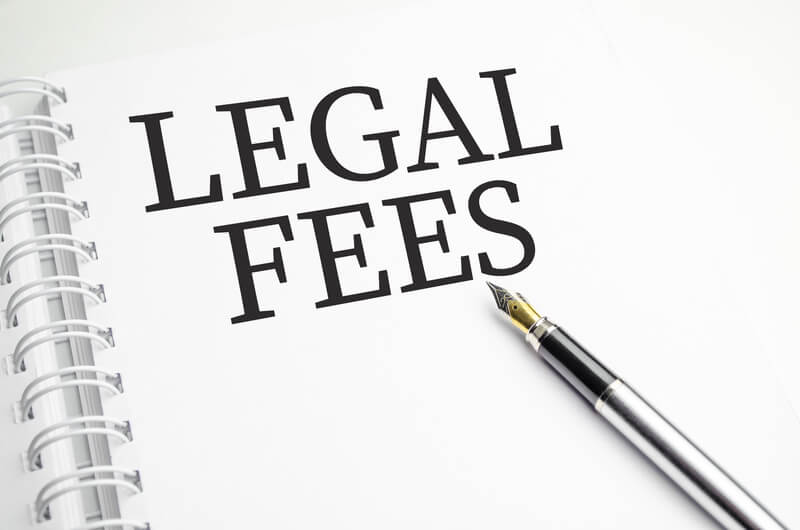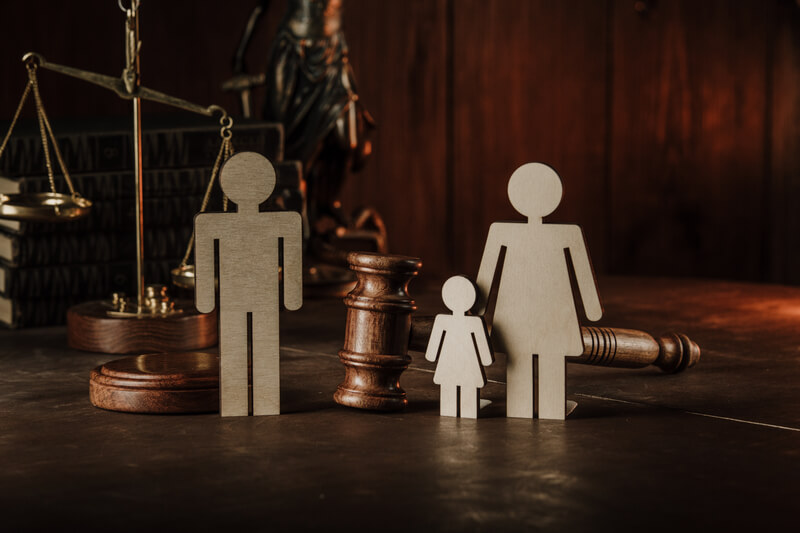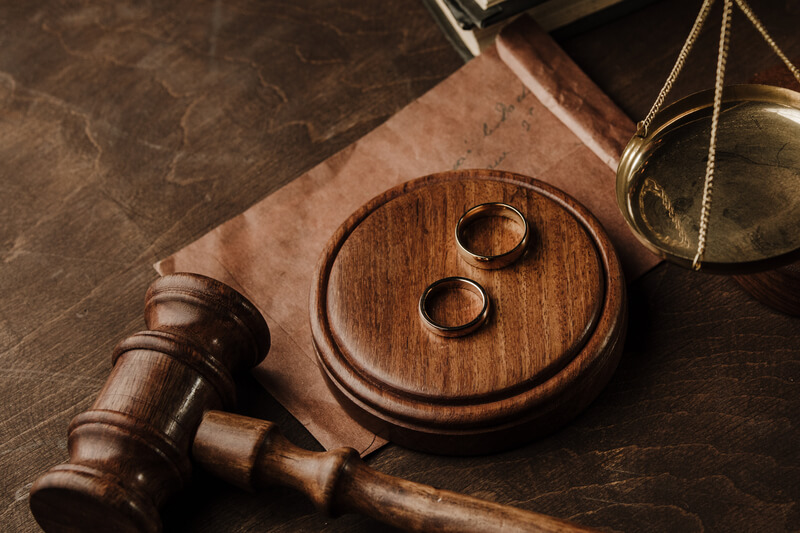Each side often pays its legal fees. Nevertheless, depending on the case’s particulars and relevant state law, there might be an exception.
The judge may require one party to cover all or a portion of the other spouse’s legal fees. It usually occurs when one spouse behaves dishonestly or with considerably greater resources than the other during the divorce process.
Spouses may decide to split legal fees in certain divorce proceedings. Any finalized divorce settlement should contain this agreement.
What Are Attorneys’ Fees?
The sum of money a client pays to their lawyer or law firm in exchange for legal services is known as attorney’s fees. These fees include the lawyer’s time, experience, and other costs associated with the case, including filing fees, court charges, and any out-of-pocket expenses.
The complexity of the case, the lawyer’s background, and the legal services’ location can all significantly impact the attorney’s fees.
While some lawyers bill hourly or employ a contingency fee structure, wherein the lawyer gets paid a percentage of the money obtained in a case, others charge a flat fee for certain services.
Before providing legal services and establishing the attorney-client relationship, the attorney and the client typically draft a formal agreement specifying the attorney’s fees.
How Attorney Fees Are Calculated
After deciding that a fee award is justified, the court will decide which party’s legal fees to charge. There is no predetermined method for calculating legal costs because every case is unique.
Nevertheless, while deciding how much each side should pay, the court will typically consider the following factors:
- The complexity of the case, including the number of mandatory court appearances
- The amount of time each lawyer put into the case
- The fair cost of legal services depends on factors like location and degree of experience.
- Any specific circumstances that might have an impact on the cost of divorce
It could be necessary for you to provide complete documents that outline the hours and duties that your lawyer performed.
The court may also consider the cost of expert witnesses, filing fees, and other case-related costs. After making a decision, the judge will publish a written decision specifying the amount of the other spouse’s legal fees that must be paid.
Factors that Influence Attorney Fees
Here are some factors that influence attorney fees in a divorce:
- The Complexity of the Case: The complexity of the divorce case is a significant factor in determining attorney fees. Cases involving extensive assets, intricate financial arrangements, child custody disputes, and contentious issues generally require more time and effort from attorneys, leading to higher fees.
- Legal Services Needed: The scope of legal services required also affects attorney fees. Some individuals may only need assistance filing paperwork and reaching an agreement, while others require full legal representation in court, negotiation, and settlement discussions.
- Attorney’s Experience and Reputation: More experienced and reputable attorneys often command higher fees due to their track record of success, expertise, and established a reputation for handling divorce cases effectively.
- Child Custody and Support Matters: Cases involving child custody and support issues can be complex and emotionally charged. Resolving these matters requires additional legal work, potentially increasing attorney fees.
- Property and Asset Division: Dividing marital property and assets can become intricate, mainly when there are significant financial holdings, real estate, businesses, or retirement accounts involved. This complexity can impact attorney fees.
- Alimony and Spousal Support: Determining alimony or spousal support amounts involves legal analysis and negotiation. The more contested these matters are, the more time attorneys might need to dedicate, resulting in higher fees.
Attorney fees in divorce cases are influenced by a combination of factors ranging from the complexity of the case and the attorney’s experience to the specific legal services required. It’s essential for individuals seeking legal representation to have open discussions with potential attorneys about their fee structures and how these various factors might apply to their unique situation.
Could I Be Required To Pay My Spouse’s Attorney Fees?
Yes, in certain circumstances, you can be required to pay your spouse’s legal fees on top of your own.
The following are some examples of situations in which the court might grant attorney’s fees:
- Child Support
- Child Custody
- Post-separation Support
- Alimony
- The contempt with relation to a claim for which compensation may be granted
- sanctions for breaking local rules or the Nevada Rules of Civil Procedure
Even while it’s not a guarantee that the court will grant attorney’s fees in these cases, there are instances where the judge has been persuaded of the need for reimbursement.
Who Pays Attorney Fees in Divorce?
Each party is in charge of paying the costs and fees of their attorneys throughout a divorce. To defend their rights during the divorce proceedings, each spouse must retain an attorney of their own.
Unless there is a significant difference in the parties’ assets or income and one spouse cannot afford to engage an attorney without financial help, it is rare for one spouse to be compelled to pay for the other spouse’s legal bills during a divorce.
In certain circumstances, if the court determines that the paying spouse engaged in behavior that resulted in the other spouse incurring additional legal fees—such as unnecessarily extending the divorce proceedings or disobeying court orders, it may order one spouse to pay all or part of the other spouse’s legal fees.
The complexity of the problems at hand, the hourly rates of the lawyers, and the time and energy needed to settle out of court or proceed to trial will ultimately determine how much a divorce will cost.
A divorce may come with other expenses in addition to lawyer fees, like court costs, mediation fees, and expert witness fees.
In addition, the parties might have to cover the cost of financial analysis, property evaluations, and other expert services. Nonetheless, in a divorce, each spouse is often in charge of covering their expenses.
When are Legal Fees Paid?
Upon the court’s determination of attorney’s fees, one party shall bear the expense of the other’s legal representation. As part of the divorce settlement, the court may send payments directly from one spouse to the other or deduct them from joint assets.
A judge may rule in specific circumstances that the legal costs should be paid in installments over a more extended period. It fulfills the parents’ commitment to pay the attorney’s costs while enabling them to handle their urgent financial requirements.
The court could take additional action if a spouse does not make the required payments. Ensuring all agreed-upon payments are made could entail rescinding the other spouse’s visiting privileges, garnishing their income, or using other punitive measures.
What Would Happen If You Couldn’t Afford to Pay Your Spouse’s Attorney Fees?
Solutions are available if the court requires you to cover your partner’s legal fees but cannot. To get a more affordable deal, you can bargain with your partner or their lawyer.
Additionally, you have the option to ask the court for modification of your commitment. If the payments are too much, the court could lower them or spread them out. You will have to explain your financial situation and why you can’t fulfill your obligation.
The court may waive this requirement if you cannot pay your spouse’s legal fees because of extraordinary circumstances—like a job loss or a medical emergency. But the court has the final say in this matter, and you must back up your plea with evidence.
What Is a “Judge’s Discretion” in Relation to Attorney Fees?
The term “judge’s discretion” describes the authority granted to a judge to decide a matter using their discretion while considering the particular facts and circumstances.
Judge’s discretion, when used about attorney fees, refers to the judge’s power to decide how much should be awarded to a party based on various factors, including the complexity throughout the case, the attorney’s time and effort, their expertise and skill level, and the fairness of the fees charged.
The judge often gives attorney’s fees to one side or the other in exchange for compensation for costs incurred in court. Attorney’s fees may be awarded to the winning party to penalize the losing party and discourage future instances of the same behavior. For instance, if the judge finds that the losing side participated in frivolous litigation or behaved in bad faith.
It is crucial to remember that a judge’s discretion is restricted, and they must base their choices on the law and the information submitted in the case. Not only that, but judges must also explain their rulings. An appeal may be filed if their rulings are determined to be illegal or not based on sufficient evidence.
What Legal Concerns Are Associated With Divorce Attorney Fees?
For those going through a separation or divorce, divorce attorney fees can add up, and several legal concerns come with them that people should be aware of.
A primary legal concern about divorce lawyer fees is the appropriateness of these fees. For their services, attorneys must charge fair rates; either their client or the court may object to excessive charges. An attorney may occasionally overcharge their client or use unethical billing techniques, including billing for unbilled hours or for services that were never rendered. Customers can object to high costs and request a break on the total amount due.
Enforcement of fee agreements is another legal concern related to divorce attorney fees. Lawyers must give their clients a formal fee agreement specifying the representation parameters and associated costs. A fee agreement might not be enforceable if it is improperly completed or its terms are illegal.
The payment of legal expenses may also give rise to potential legal complications. As part of a divorce settlement or court order, a husband or wife may occasionally be required to reimburse the other spouse for legal expenses. The receiving spouse might be required to file a lawsuit to enforce the order if the paying spouse refuses to pay the fees.
Lastly, there can be legal complications regarding the taxation of legal expenses. Unless specifically permitted by the tax code, attorney expenses paid for divorce are usually not tax deductible. Clients want to speak with a tax expert to find out the financial ramifications of their legal fees.
If you are divorcing, you should collaborate with your lawyer to document their fees appropriately. You should also be aware of the legal concerns surrounding attorney fees.
Do I Need a Lawyer to Help Me with Legal Issues in My Divorce Case?
It is very advised that you speak with a knowledgeable divorce attorney if you are going through a separation or divorce to assist you in navigating the legal problems involved. Divorce cases are often emotional and complicated. It is possible to guarantee that your rights are upheld and that you get a just and equitable resolution by having an experienced lawyer on your side.
A divorce attorney can offer you many services: legal counsel, court representation, and help to draft a settlement agreement. They can assist you in comprehending the legal implications of your case, including alimony, child support and custody, and property distribution. They can also assist you in obtaining the records and proof you need to back up your claims, and they can represent you during mediation and court hearings.
It is advised that you have a settlement agreement reviewed by an attorney before signing, even if you and your spouse can agree on most issues. In addition to ensuring the agreement is reasonable and legally enforceable, a skilled and competent divorce attorney in Las Vegas may also advise you on any possible risks or areas of worry.
Get Help With PRO LAW GROUP
Divorce fees can be contentious and have a significant long-term financial impact. If you’re facing disagreements or need help addressing your partner’s legal fees, it’s important to consult with a family law attorney who specializes in divorce cases.
At PRO LAW GROUP, we offer tailored solutions to fit your needs. Whether you need full representation for a complex case or just minimal legal advice for a simpler matter, we can help manage different aspects of your divorce, potentially saving you money on attorney’s fees.
If you have any questions or need additional information, don’t hesitate to schedule a consultation. Call our law office at (702) 474-0500, and Donn W. Prokopius will be happy to provide you with the answers and guidance you need.



